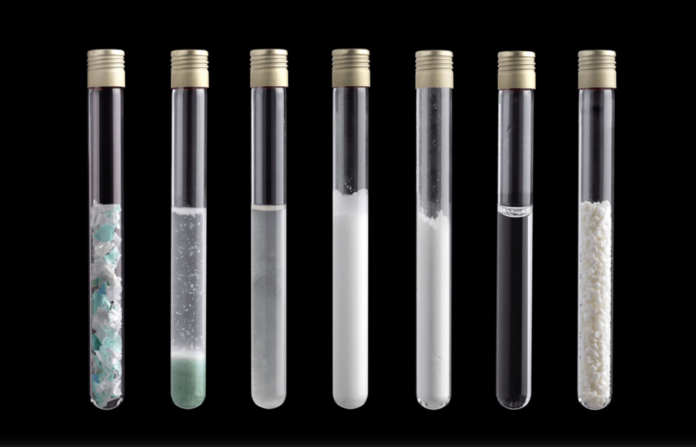Carbios announces that it has validated the 3ᵉ and final technical stage of the CE-PET research project, co-financed by Ademe (Agence de l'environnement et de la maîtrise de l'énergie), and for which Carbios is lead partner alongside its academic partner TWB. This breakthrough confirms the potential of Carbios' enzymatic recycling process, C-Zyme. This ground-breaking innovation makes it possible to produce, from any PET waste, including textiles, a wide variety of products of equivalent quality to those of petro-sourced origin.
Worldwide, almost 90 million tonnes of PET are produced every year, of which over 2/3 are used to manufacture fibres. However, only 13 % of textile waste is recycled to date, and mainly in downcycling, i.e. in lower-quality applications (such as padding, insulation or rags). By producing a pilot-scale white PET 100 % fiber enzymatically recycled from colored textile waste, Carbios aims to open up the circular economy to the textile industry. According to the company, C-Zyme is now on the verge of industrialization, and will soon enable leading brands to move closer to their sustainable development objectives.
Separate collection of textile waste soon to be mandatory in Europe
From January 1, 2025, separate collection of textile waste, already in place in some countries, will be made mandatory for all European Union member states (European Waste Directive 2018/851). The process developed by Carbios will thus be one of the solutions that will enable this waste to be recovered, making it part of a genuine circular economy model.
These technological validations were carried out as part of the CE-PET research project, co-funded by the French Environment and Energy Management Agency (Ademe). In particular, the project aims to develop Carbios' enzymatic PET recycling process for textile waste. The C-Zyme technology is complementary to thermomechanical recycling, and will make it possible to treat plastic and textile waste deposits that are currently not or poorly recovered. Carbios received €827,200 (€206,800 in subsidies and €620,400 in repayable advances) to validate this stage of the project.
The world's first PET biorecycling plant
Carbios has announced its collaboration with Indorama Ventures in the construction of a reference plant using Carbios' PET biorecycling technology at Indorama Ventures' production site in France (Longlaville, Meurthe-et-Moselle).
This unique biorecycling plant combines the science and technology of Carbios with the world-class manufacturing capabilities of Indorama Ventures. This collaboration will meet the growing needs of consumers and major consumer goods companies for more sustainable packaging, including Carbios' partners and shareholders (L'Oréal, Michelin, L'Occitane, Nestlé Waters, PepsiCo, Suntory Beverage & Food Europe).
The aim is to build and operate the world's first PET biorecycling plant in France. The plant will have an estimated processing capacity of around 50,000 tonnes of post-consumer PET waste per year, equivalent to 2 billion bottles or 2.5 billion trays.
The investment required for the project is estimated at 150 million euros for the Carbios technology, including an additional purification step, which has been integrated into the process. At the same time, an estimated 50 million euros will be invested in preparing the site infrastructure. The project is expected to create around 150 direct and indirect full-time jobs.




